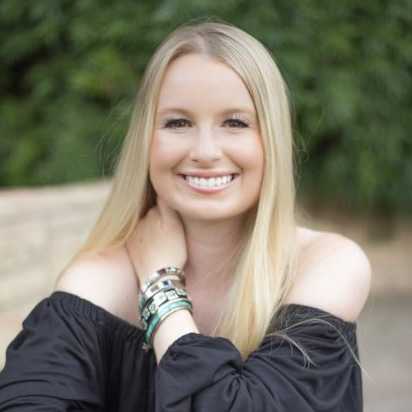Home > Why Choose Gateway > Personal Stories > Kerry’s OCD Story

Kerry’s OCD Story
“I didn’t even know there was such a thing as what I now refer to confidently as “OCD Recovery.”
In 2010, I had three years of failed talk therapy under my belt — I was never told there was specific treatment for OCD, much less that my quality of life could significantly improve while still having OCD. All I knew was that I was 18 years old and recently diagnosed with something called obsessive-compulsive disorder. I didn’t care enough to even research OCD — I didn’t think of it as a “disorder.” While my parents fought to get me in front of the next person who could try and help their troubled daughter, I was too busy anticipating and focusing on the next intrusive thought and preparing for my compulsion in response. I needed to do whatever I needed to do in order to get that knot out of my stomach, even if it was relief for five solid seconds, thank you very much.
It was one year after my freshman year of college. One year after being the university’s most fascinating specimen — “The Obsessive Outsider.” One year after being bullied because I was deemed “demonic,” “schizo” and (my personal fav) “Crazy Kerry.” (“Here she comes hearing voices again, watch! You have to see her walk — LOL! I swear something is so wrong with her.”)
I was broken, battered and obsessed — until I found Jim. Through Jim, I found terminology I had never heard of before – exposure and response prevention (ERP). I was told I needed to go through an intensive program. I followed suit. Not because I knew it was possible to get better — but because my parents and therapist told me this was the next step. I didn’t know or care what this so-called “ERP” was — I also had no idea it would lead me to a quality of life better than my current living hell.
Until I found it out for myself. Until I learned to do one exposure after another, because I had nothing left to lose. Until I realized this was all just a silly disorder — nothing more — ruining my life. Until I realized — I could do something about it. I was exhausted, and sometimes I just couldn’t do the compulsion and had to give in. Sometimes I was angry at the OCD and purposely didn’t do the compulsion. Other times, I wanted to make Jim and my parents proud. All the while something was happening — the more exposures I performed, the more those specific obsessions faded. Then something new would pop up, be exposed and slowly fade. “Did I just walk all the way to class without looking at the ground performing compulsions — intentionally?” “I don’t want to give those people staring another reason to laugh — so I am going to push through this exposure of not going up and down the stairs three times — I am going down once and I will keep walking.” “Oh my gosh – I can do this.”
It has taken years of my own perseverance. It took me proving to myself the exposures worked so I could continue pushing through and facing them. It took me becoming my own therapist, because I was the only one inside my head all the time. I was the only one who could truly hold me accountable. It took me and only me wanting to get better, because I was seeing the results before my very own eyes.
Today, I can confidently say I have broken the foundation of my “OCD” belief system. I can confidently tell you I can go months without any real obsessions. Do I still have OCD? Absolutely. Do I have periods when I’m anxious over a fight with my boyfriend or a new job interview and obsessions start pounding through my mind like an electric shock? Yep. Do I ever give in because the anxiety is so bad I might not get the job unless I touch this random item? Yep.
I still have OCD — but I also choose to have quality of life.
Now, when I feel my mind being flooded with intrusive thoughts, I know I need to stop — stop and recognize the OCD trying to sneak back in. I know I need to get on those exposures immediately if I want to stay in a good place. I will never go back to that dark, dark place — because I know I am solely in charge of my reactions to my obsessions, and I have proven to myself time and time again that when exposed properly, the obsessions really do slow down and/or stop. There is relief. And with relief, comes recovery.
Please remember — I was someone who couldn’t even take one step until the magical thinking of OCD told me where to step, how long I needed to stand there, and if I needed to swallow on that specific step in order to make sure I didn’t fail an exam. I was someone who was so isolated, I lost all social skills. I was someone who couldn’t practice proper hygiene, who couldn’t take a bite of food, read or write a sentence unless my OCD “allowed” it.
So when I tell you that OCD recovery is absolutely real — please know this comes from years of personal experience. I’ve transformed from a lonely and confused girl to a woman who has found fulfillment in this short life — by working full time as a mental health blogger, breaking boundaries and stigmas on social media and as a speaking advocate. I want to show people just like yourself that OCD recovery is absolutely possible and oh so very real.
Extending a warm hand of hope to all of you,
Kerry
